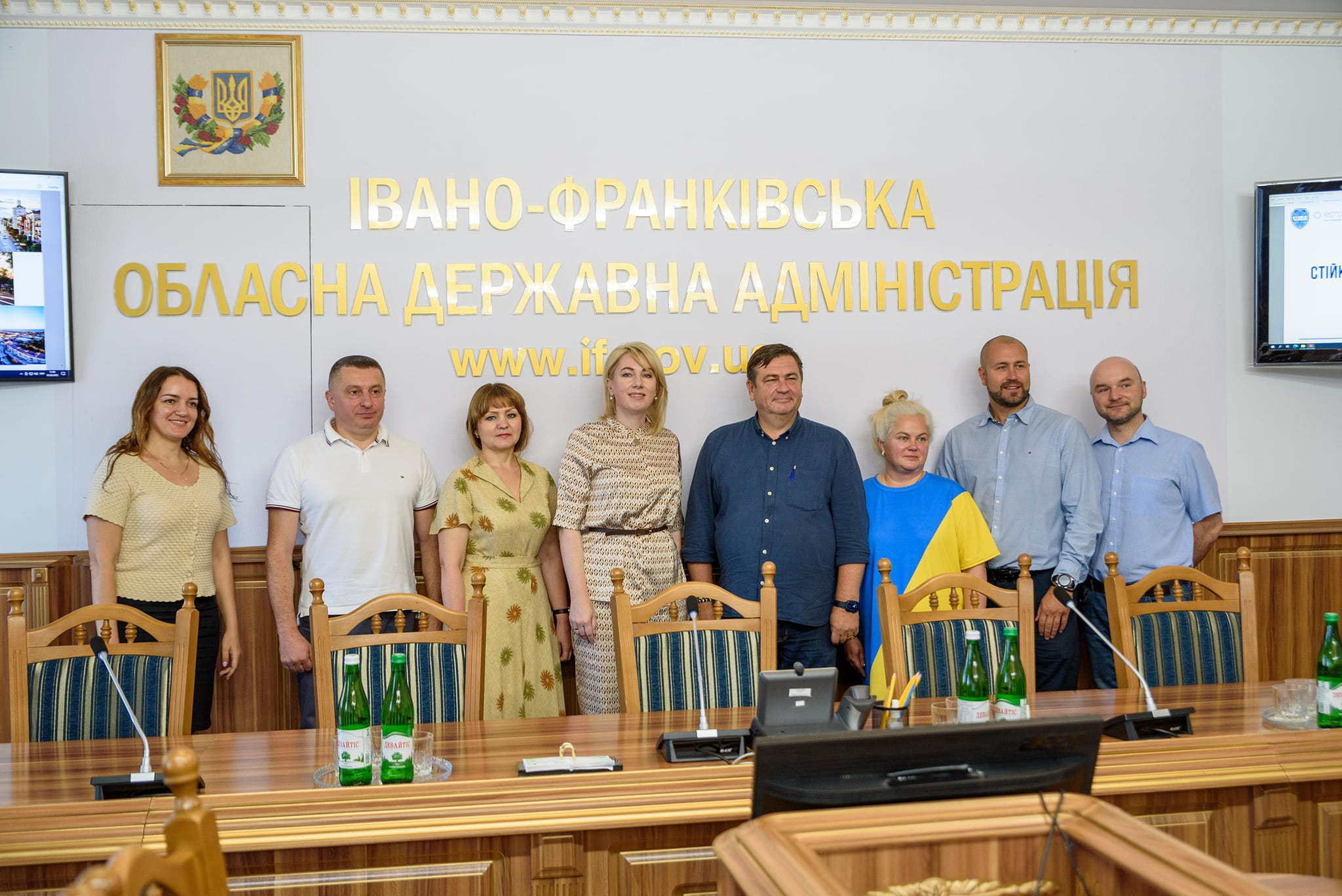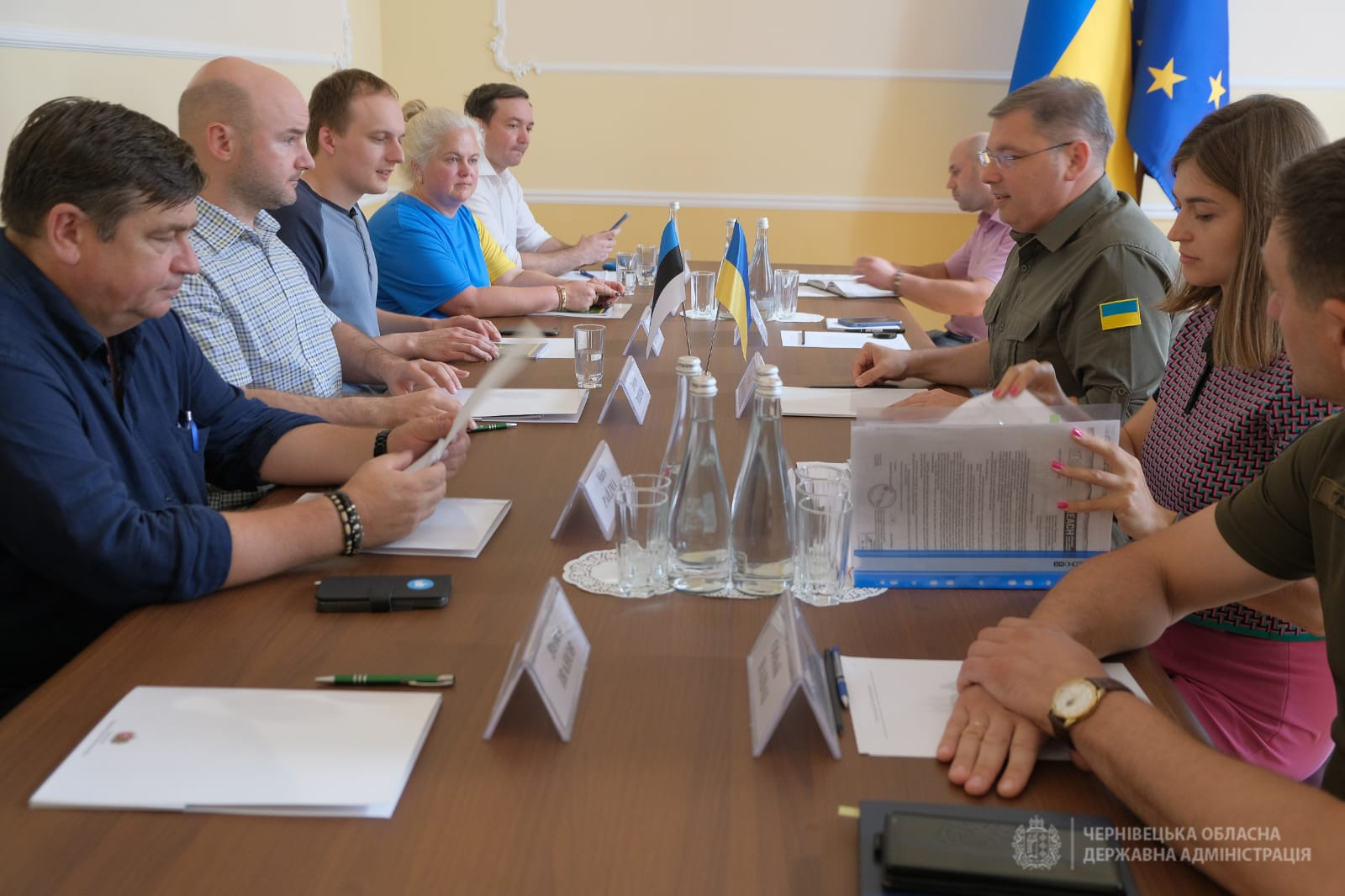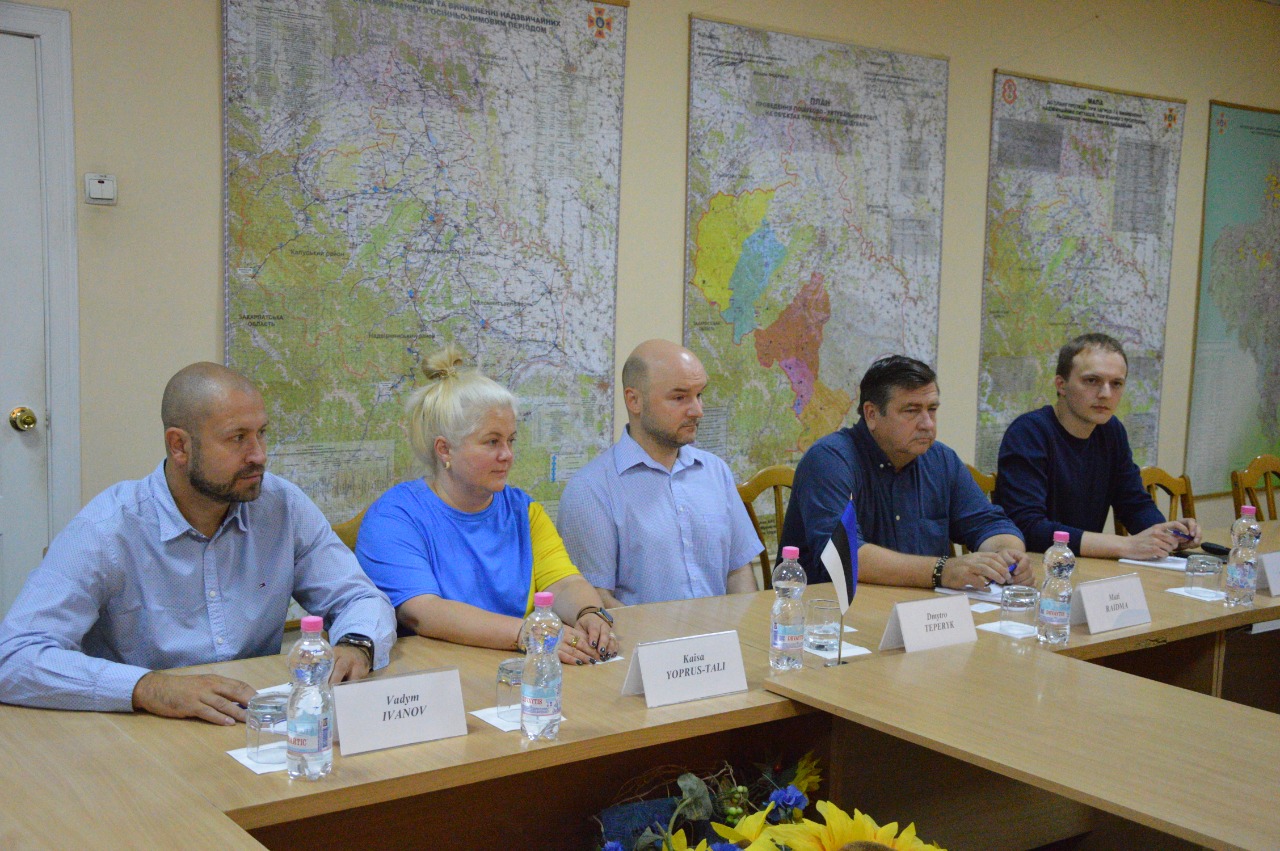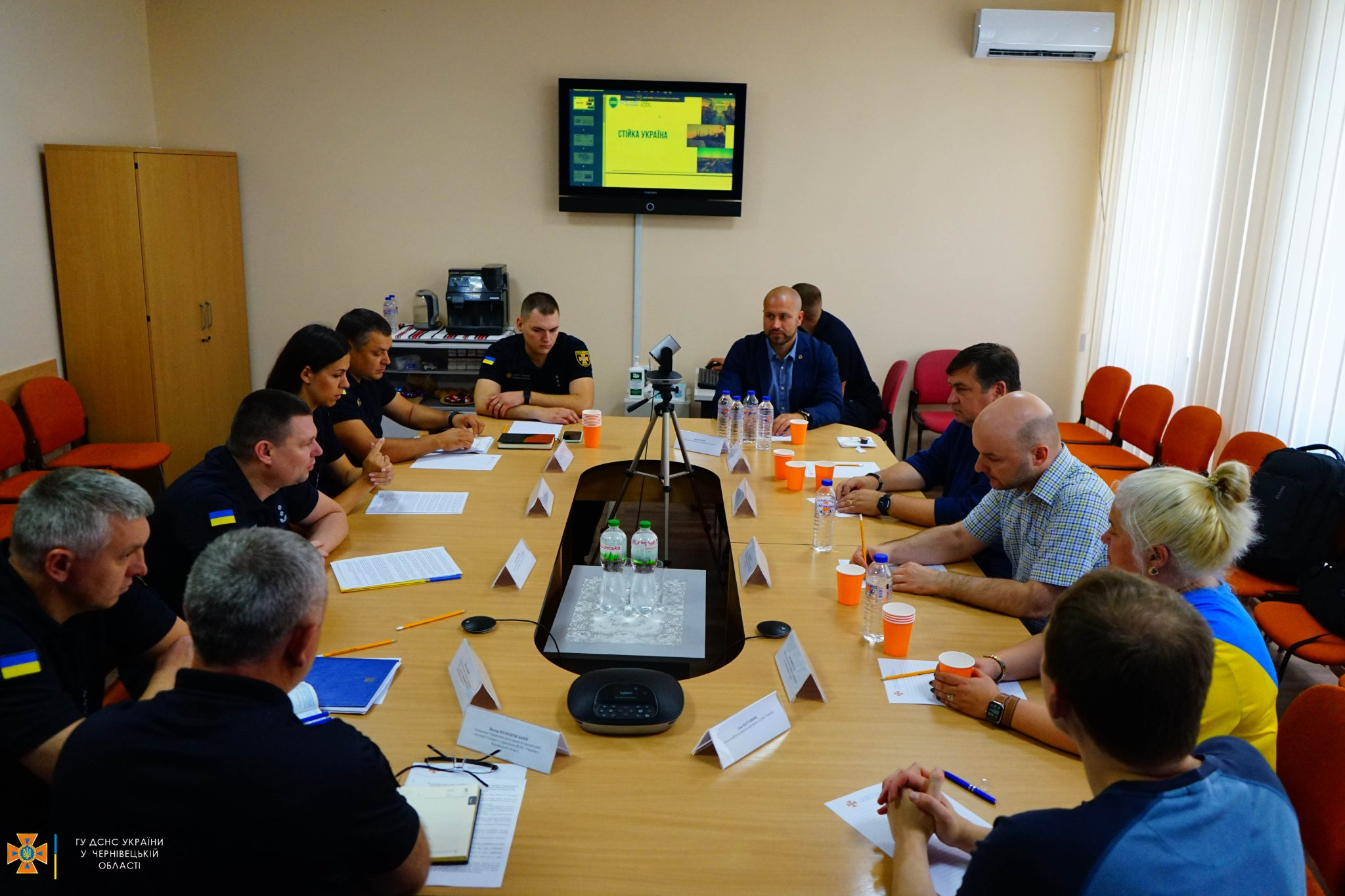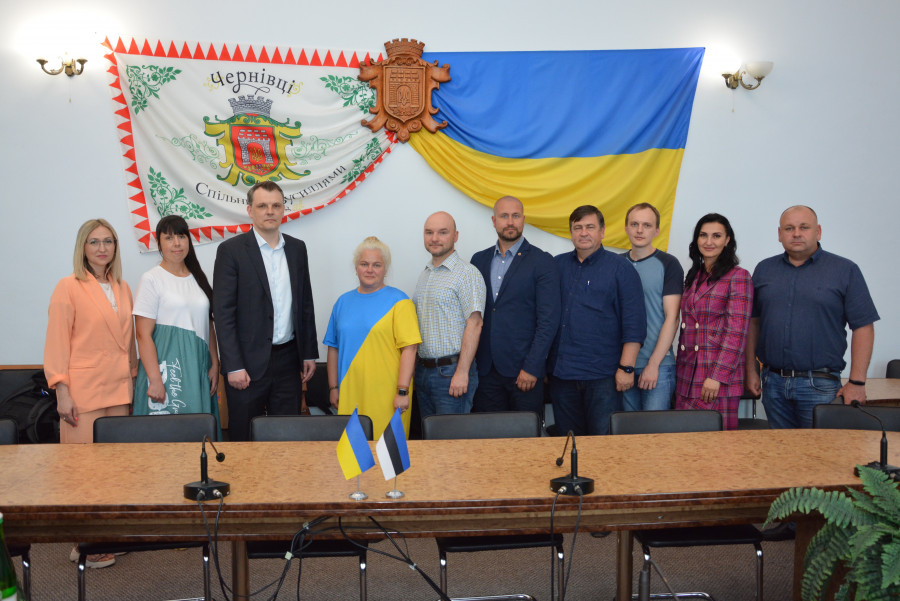“Resilient Ukraine” to resume cross-sectoral crisis simulation exercises
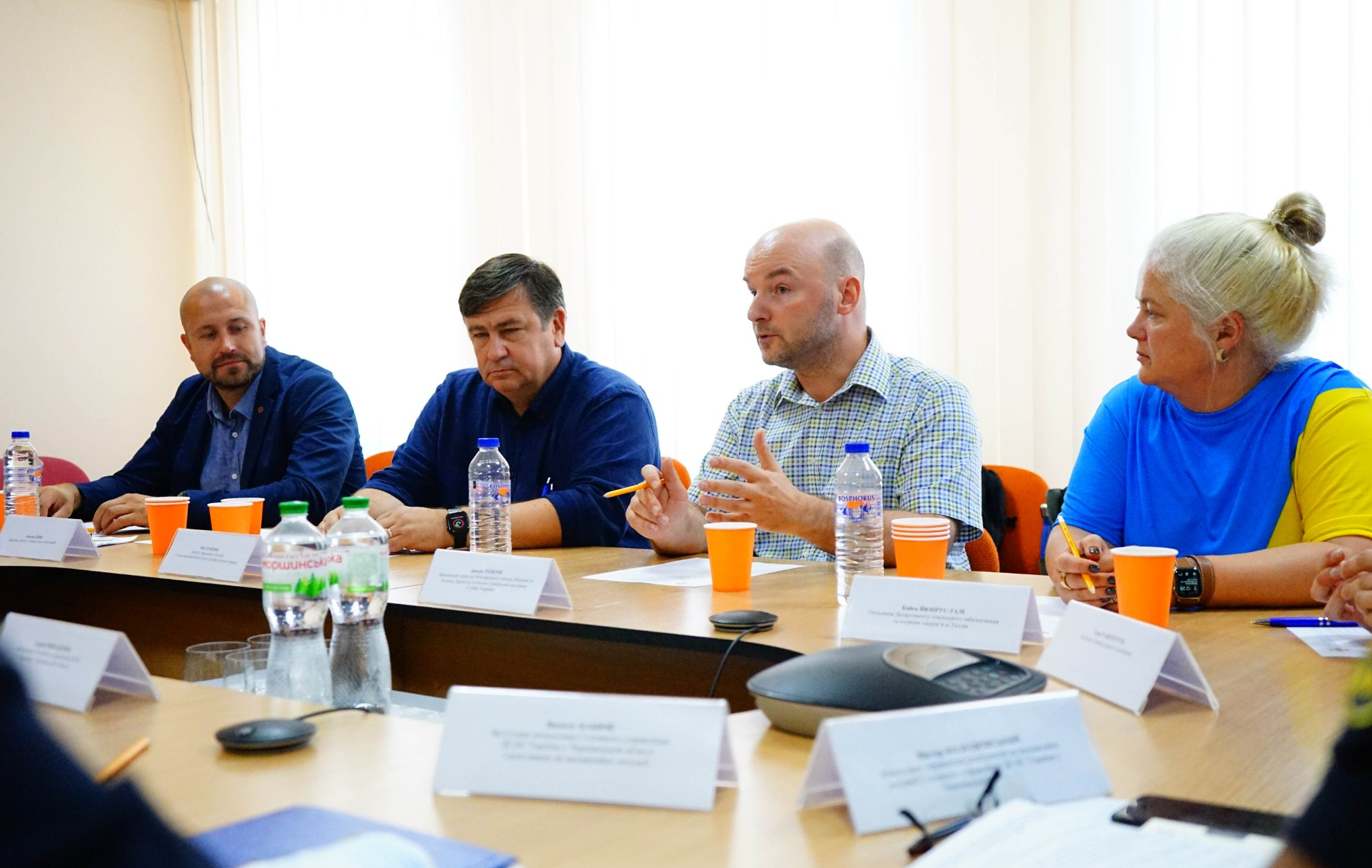
With the goal of enlisting cooperation of the local authorities in Chernivtsi and Ivano-Frankivsk Oblasts, the “Resilient Ukraine” programme hosted an expert workshop on August 1-2, 2022, for reviving the activity on cross-sectoral crisis simulation exercises in western Ukraine, which fall within the framework of the “Strengthening Ukraine’s Societal Resilience through Building Regional Expertise and Analytical Capacity in Civil Security Issues” project, supported by the Estonian Center for International Development (ESTDEV) and the U.S. Embassy in Kyiv.
During a two-day-long workshop in Chernivtsi, the participants discussed the crisis simulation exercises in the circumstances of the full-scale Russian aggression. “Resilient Ukraine" decided to reorient the project to the west of Ukraine and adapt its methodology, as well as the crisis simulation scenario, to the new wartime realities.
“Unfortunately, despite successful training exercises in Sumy and Dnipro, we were forced to suspend our activities in the eastern and southern oblasts amidst Russia’s full-scale aggression against Ukraine,” Dmitri Teperik, the “Resilient Ukraine” programme’s director said. “However, we have now found an opportunity to restart the cross-sectoral crisis simulation exercises. Our team is updating the methodology and adapting to the new realities in Ukraine and in its western regions in particular. Ukrainian and Estonian experts have been working relentlessly together to relaunch the training exercises.”
In the course of the workshop, the experts agreed that the exercises should focus primarily on cultivating cross-sectoral trust and shaping situation awareness of the ways to overcome a complex crisis. “Crisis simulation exercises will dwell on crisis situations that go beyond one agency’s area of responsibility. A solution to such modern-day crises requires combined efforts by various government and non-government institutions through discussion and joint decision-making," Mati Raidma, an expert of “Resilient Ukraine” and crisis simulation exercises mentor, explained.
The exercises, developed by “Resilient Ukraine” team, are unique because the scenario’s central focus is on the participants and their interaction. “Our goal is to create an experimental safe learning environment, where participants gain a set of critical skills and sharpen the tools necessary for mitigating real-life crises,” said Vadim Ivanov, an EU-recognised expert of crisis management and one of the project’s mentors. At the same time, these training exercises are aimed not at testing the individual’s professional skills but rather at mastering interpersonal ones. It implies developing their ability to negotiate, compromise, and make collective decisions to act. “Our twenty-plus years of experience in handling various crises have taught us that the problem seldom lies in one’s professional skills or adherence to protocols,” Mati Raidma added. “In most cases, soft skills, such as one’s ability to communicate efficiently, negotiate successfully, and arrive at hard but mutually acceptable decisions, are to blame.”
In addition to the workshop, “Resilient Ukraine” team arranged a series of working meetings to foster cooperation with the security stakeholders and local authorities in Chernivtsi and Ivano-Frankivsk oblasts. For instance, the agenda included meetings with the regional military administrations and the State Emergency Service’s regional departments, as well as the local city councils.
Furthermore, the programme encouraged the attendees to share the challenges they had confronted since the beginning of the great war. “Our goal is not only for you to participate in the crisis simulation exercises but also for us to better understand what challenges you have faced and will be facing in the future,” Dmitri Teperik said. “After all, Estonia — as a member of the EU, NATO and other international organizations — has responsibility and a reasonable opportunity to convey your needs to various multilateral platforms. This interaction today will allow us to prepare sufficient resources to assist Ukraine at the next recovery phase as well.”
The meetings also touched upon social security and refugee issues. “Estonia has been helping Ukraine and will continue to do so,” Kaisa Üprus-Tali, the head of the Social and Health Care Board at Tallinn City Municipality and the programme’s expert, opined. “We are invested in your valuable experience related to handling internally displaced persons. Since Estonia accepted more than 50,000 Ukrainians after February 24, 2022, we should share our experiences in mitigating the refugee crisis, with the issue of their integration being the focal point.”
The “Resilient Ukraine” two-day cross-sectoral crisis simulation exercises will be held offline from October to December 2022 in western Ukraine’s six major cities: Chernivtsi, Ivano-Frankivsk, Lviv, Uzhhorod, Lutsk, and Ternopil.
Reference:
The “Strengthening Ukraine’s Societal Resilience through Building Regional Expertise and Analytical Capacity in Civil Security Issues” project operates with financial support from the Estonian Center for International Development (ESTDEV) and the U.S. Department of State Office of the Assistance Coordinator for Europe and Eurasia under the Eighth Round of the Development Cooperation Partnership (DCP) Program.
